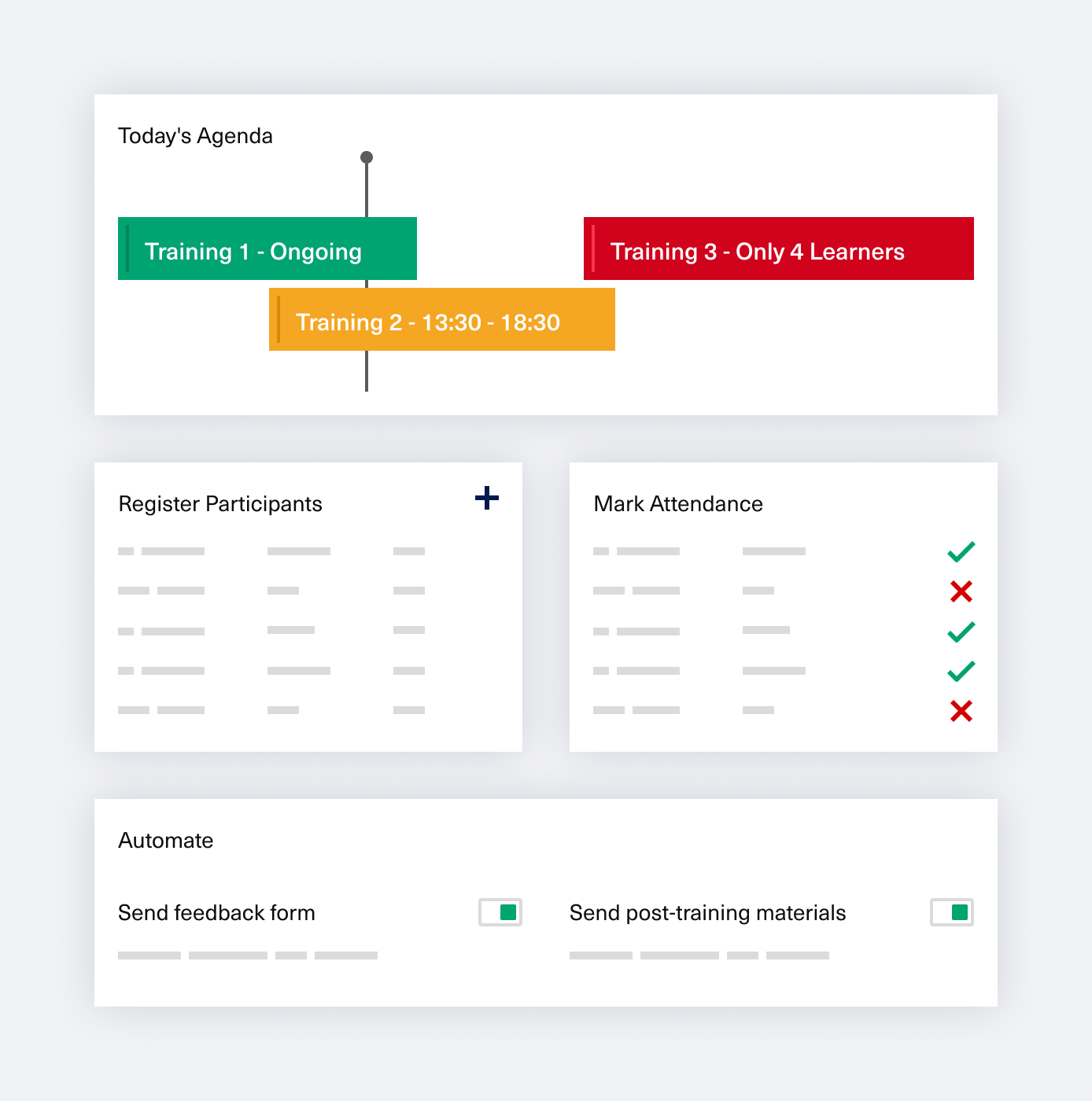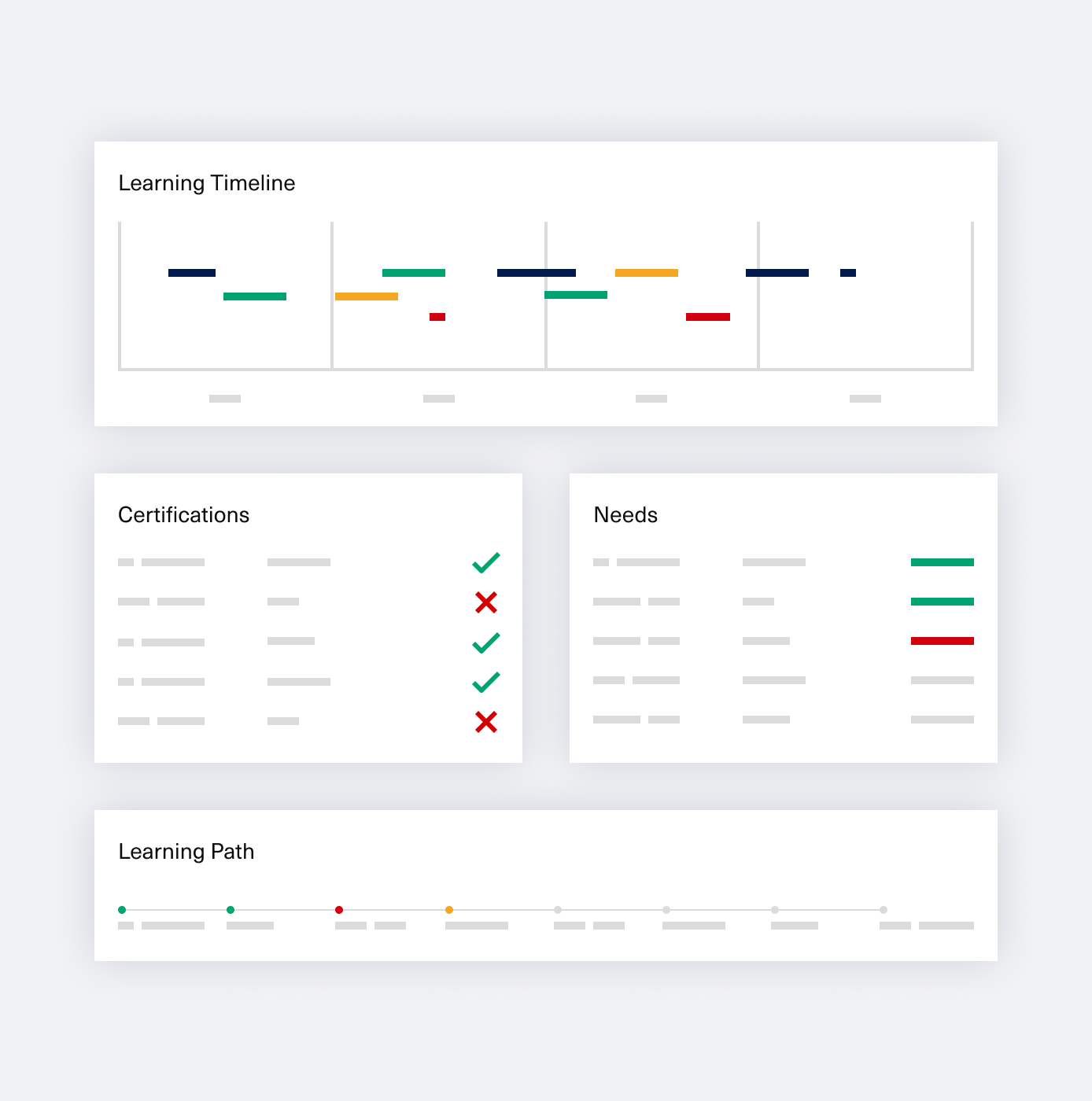The two most important assets that help push a company forward are its people and its knowledge. To continue evolving, a company’s goal should be to keep its excellent people and its business-driving knowledge in-house and avoid losing them at any cost. High-performing individual contributors are the perfect example of “people meet knowledge”, so they’re definitely worth fighting for, encouraging, rewarding, engaging, and, ultimately, retaining. They are the ones who leave the most significant knowledge gaps when they leave their role.
These high-performers sometimes receive promotions into managerial positions to keep them motivated and reward their good results. You’d think this implies that their knowledge is safely kept within the company and put to work further, but that’s actually not the case for far too many companies. In fact, when someone is promoted into a team leader role, there’s a (hopefully temporary) gap in team productivity and use of that knowledge, which might not pay off in the long run.
How are companies dealing with team leader promotions today?
Promoting someone into a managerial position for having good skills in their individual contributor role is a mistake too many companies continue to make. The two skill sets are different, and lots of problems can arise from this situation. Just because someone is a good salesperson, software developer, recruiter, financial analyst, or marketer doesn’t implicitly mean they are also a good people manager. However, it is commonly accepted that becoming a manager is the natural progression in someone’s career. I’d say it’s pretty often for the wrong reasons.
This isn’t inherently bad or unsolvable. There are, undeniably, people who naturally fit into their new roles. And there are courses and mentoring and learn-by-doing exercises, and many other ways in which a skill-based profile can turn into a managerial profile. What I’m saying is that it’s not necessarily the most effective way to grow for an organization, as it creates a lot of friction, especially in the unlearn/relearn part of the change, where you’re going against the grain of many of the people that are being promoted.
Your organization is only trying to motivate and keep valuable employees on board the same way many other companies do: by pushing them up in the hierarchy. Someone’s doing a job very well, has a lot of expertise, would leave a considerable gap if they left, and might be a flight risk? Quickly, let’s slap a promotion onto that situation; surely it will do the trick! Clearly, millions of companies have been doing this for so long, so it’s not a complete showstopper, right?
Taking this quick opportunity to say that I won’t be going into that whole conversation on how to improve the retention of good talent. I also don’t want to diminish the crucial act of managing a team and being that communication and decision-making layer between hierarchical levels. These are essential aspects, and the takeaway from this article shouldn’t be that I’m downplaying them. I just want to focus on the skill gap thus created and what I believe is the best way to fill it.
Becoming a team leader is an emotional and professional rollercoaster
That’s especially true early on in your career. I personally remember the excitement I felt on my first promotion, moving from an individual contributor role to team leader. The first week was splendid! The rest of the year? Though highly rewarding for very many reasons, I do remember feeling confused and frustrated quite often. I felt like I couldn’t help my team a lot of the time because the knowledge transfer component had been almost absent. And I do remember failing in some parts of my job, too.
I ended up on so many occasions just stepping in and doing a particular task myself, simply because I had no time to teach, my team had no time to learn, and the thing needed to be done ASAP. This breeds resentment and isn’t a transparent and effective way for a team to move forward. And I realized, after another couple of promotions, that the “manager” badge doesn’t hold too much value for me personally, for my own professional goals. I loved all my teams and colleagues (well, most, in all honesty), but I’m not a natural fit for a team leader. I do love, though, explaining what I’m good at and helping them learn to do it themselves. That, I really, truly LOVE!
In my opinion, managerial promotions offered to employees who are showing exemplary skill should first and foremost be followed up by the clear expectation that skill transfer should occur and be excellent. In other words, I would only promote teacher-managers and make their first and most important task to perform diligent knowledge transfer. I would prioritize this activity until the whole team achieves excellent results. Everything else I would consider secondary.
The mistakes we don’t always want to talk about
Is it currently implicit that a new manager should teach the team their own skills? I’d say no or only on paper. Looking at many companies’ promotion behaviors, the time required for knowledge transfer is frequently overlooked. Often, it’s typically considered equivalent to however long it takes Recruitment to backfill the position. But companies are also smart about this. If there’s a promotion planned, chances are the pipeline is already hot, and a new team member is already on their way. So what do we end up with? A new manager who doesn’t contribute to the team’s performance goals anymore and a new team member who has little to no knowledge of what they should be doing. This hurts team performance at both ends.
Is it fair to say that the new team leader spends (probably too much) time extracting reports or being blocked in endless meetings that could have been an email? I’d say yes. This excellent performer is no longer actively contributing their skills to the organization and is not spending enough time transferring their knowledge. The new team leader’s confusion and frustration mount, and errors start to happen. Even upper management is confused: why is this excellent employee suddenly so bad? Essentially, the newly promoted team leader has become a bottleneck.
Could a new approach add more value?
How do I see this solved? My gut tells me that the best person to be promoted should be the one who can continuously teach and support their team to do the work they are meant to do. Everything else I see as administrative overhead, which could be covered by efficient data collecting and reporting, and/or some people who truly belong in managerial positions: those who thrive on being the liaison between various departments, teams, stakeholders, who love analyzing data and are good communicators. Basically, let individual contributors be excellent at what they do and enable them to do more and help others, too, and allow managers to manage.
Of course, this does raise some questions, and I admit I don’t have all the solutions on the spot.
What happens to these people once they’ve done most of their knowledge transfer work? Maybe they have an opportunity to move into a different department, to learn new things, and to apply some of their current skills in a new context. Some will undoubtedly thrive in management and could stay there forever. Some might not, and it’s actually better for everyone that they move on as an individual contributor to some new business area. Talent mobility has become a bit of a buzzword in the past few years. But it is indeed a healthy way to improve retention and employee satisfaction, many companies are living proof of this. And it’s an excellent way to prevent knowledge churn. In fact, it’s a great amplifier of knowledge, since now, an employee who has in-depth awareness of a particular side of the business can use this wealth of information in a new business area, with potentially unexpected and positive results.
Does it have to be that the most knowledgeable employee receives that managerial promotion? No, it’s simply good enough to create space in your top performers’ schedule to actually do the knowledge transfer with the rest of the team, and there doesn’t have to be talk about becoming a team leader unless that person truly wants to. The learning transfer goal is achieved, and no one has to go through the pain of having done the whole promotion dance, only for both parties to find out, 6 months later, that it wasn’t a match. Someone else on the team who isn’t currently the highest-performing individual contributor might even better fill the team leader position. Who knows?
What if a company is growing so fast that it doesn’t have enough people to cover both contributor and managerial positions, let alone time to identify high-performers? This is a tricky one. The chaos of growth forces the leadership team to cut corners, which I can certainly understand – they’re building the train as it’s racing down the rails. You can’t expect the perfect setup even from well-established companies, let alone ones that are just now figuring out what they’re doing. But I will still put forward the idea that knowledge must somehow be captured for future learning efforts. It’s essential to understand what worked wonders in the early days, as well as what the mistakes were. This information can enrich many new joiners’ onboarding experience and prevent significant disasters down the line.
Finding another way to move forward
What I’m trying to get at is that:
A. the best employees leave the most significant gaps when they leave their individual contributor roles and often create friction in a new managerial position (so double damage here, which compounds over time in large organizations and ultimately translates into net loss);
and B. companies could have a better look at why they promote people into team leader roles. They should make decisions driven by efficiency and knowledge transfer metrics and stop dangling the mirage of the “manager” badge next to someone’s role as an incentive to retain good talent.
I genuinely believe that this behavior would de-incentivize people to simply wish for managerial promotions just for the sake of the title’s apparent prestige. It would also encourage organizations to look at business-relevant metrics in the way they promote team leaders so that gaps no longer occur and everyone’s happy doing what they know and like best. As countless studies and surveys show, offering the appropriate recognition for your employees’ work is one of the highest retention predictors for companies, positively influencing the effective use of knowledge within that organization.



















